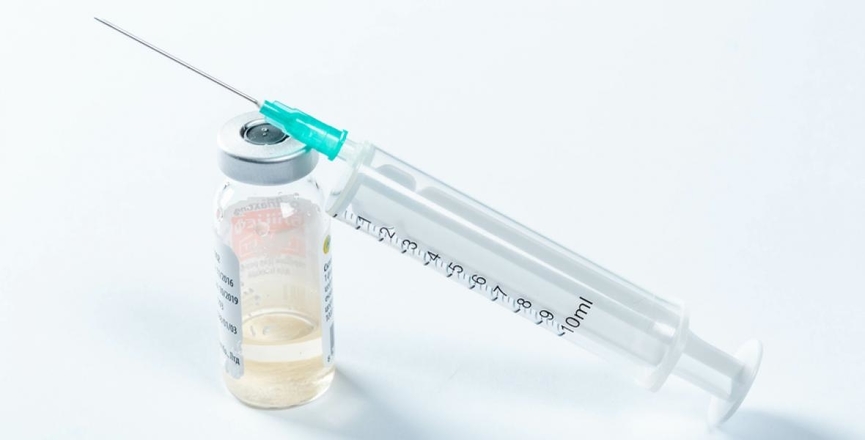“Canada’s vaccine strategy is all about ensuring that Canadians will be able to get a vaccine once it is ready.” That was a key takeaway from Wednesday’s throne speech, and a disappointment to those who thought the speech might finally chart a clear Canadian path to promoting equitable global access to a COVID-19 vaccine beyond its borders.
There was a time when this looked probable. In an open letter first published in the Washington Post in July, Justin Trudeau led a group of eight prime ministers and presidents as they called “on global leaders to commit to contributing to an equitable distribution of the COVID-19 vaccine, based on the spirit of a greater freedom for all.”
There was also a multilateral vehicle seemingly tailor made to serve Trudeau’s professed goals: COVAX is an international partnership whose “aim is to accelerate the development and manufacture of COVID-19 vaccines, and to guarantee fair and equitable access for every country in the world.” And indeed, Canada submitted its nonbinding “expression of interest” to COVAX before the August 31 deadline.
However, just two days after that deadline, the headline “Canada mulls global vaccine contribution as Trump turns back on alliance” about summed up the state of affairs.
The United States had rejected COVAX in favour of going its own way, to nobody’s surprise. Canada’s status was both murkier and more surprising: “There’s definitely an interest by our government to be part of the facility. That I can confirm,” was the best that a spokesperson for Karina Gould, Canada’s minister of international development, could muster. “We’re looking at our options now.”
Even stranger was Canada’s total silence as the September 18 deadline for finalizing a commitment came and went. Other countries publicly made announcements — the U.K. was in, a group of Latin American countries wanted in but needed a little more time — but Canada said nothing.
Even most Canadians following the matter closely did not learn Canada had joined until Monday morning, when a tweet from Gavi — not from the prime minister or from any official Canadian government channels — broke the news. Further details of this commitment were not forthcoming, in stark contrast to the detailed breakdowns accompanying official announcements from other donors like the European Commission, and other recent Canadian global support initiatives that are typically associated with much publicity.
To be fair, Canada has long been a major supporter of Gavi, the Vaccine Alliance, which is a core partner in COVAX. Indeed, in May of this year, that same minister of international development announced a $600 million donation to Gavi for other vaccination programs. This makes Canada’s reluctance to publicly clarify what exactly it is doing with COVAX — even if that were something as gauche as politely reallocating its recent and admittedly generous donation rather than pulling out its wallet again — all the more bizarre.
The lack of detail was so surprising it left at least some observers assuming the announcement would be highlighted as part of Wednesday’s throne speech. Instead, the speech only managed to squeeze in a vague claim near the end that “Canada will also support work to ensure that people around the world have access to a vaccine.”
Of course, even a hearty endorsement of multilateral action in a throne speech doesn’t always pan out. For instance, the much-vaunted peacekeeping that formed part of the first “Canada is back” Trudeau throne speech in 2015 has proven notably less vauntable in practice.
And it is also true that the throne speech does, at least partially, echo the idea raised in Trudeau’s equitable access piece that ending the pandemic anywhere is dependent on ending it everywhere. At the same time, the backdrop to the speech was not Trudeau’s appeal months before that “where you live should not determine whether you live, and global solidarity is central to saving lives and protecting the economy,” but rather the previous day’s announcement that Canada had entered into the fifth of its billion-dollar flurry of bilateral vaccine deals promoting access for Canada alone.
Such bilateral deals will inevitably delay any prospect of truly equitable global access to a finite supply of vaccine.
Finally, a week after the COVAX deadline, details of Canada’s commitment — $440 million split evenly between procurement for Canadians and access in low and middle income countries — became public.
The announcement was made alongside that of Canada’s sixth bilateral vaccine deal. Canada now has far more doses lined up than it needs, even assuming not all of the vaccines are effective.
Canada could, and should, commit to donating these excess doses, but there’s little equitable about having to wait for Canadian leftovers. As such, Trudeau’s accompanying re-assertion that “the pandemic can’t be solved by any one country alone because to eliminate the virus anywhere, we need to eliminate it everywhere” somehow doesn’t feel like the inspirational commitment to equitable access it once did.
Adam R. Houston is a PhD candidate in the faculty of law at the University of Ottawa working on access to medicines issues at the intersection of law and health. Twitter: @HealthLawAdamH. Srinivas Murthy is a physician and researcher based in Vancouver, Canada. Twitter: @srinmurthy99.
Image: Marco Verch/Flickr



